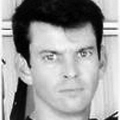Terry stood on the line, Chris beside him. Both were sponsored and well practiced. This was the final round. No pressure.
On average, Terry spent two hours per day practicing. He drilled every variation of distance, weather condition, and fatigue level. His stance was perfect, his drawback was strong and smooth, and his release was a quiet, natural surprise. He drilled until he got it right, then he drilled until he could not do it wrong. His body was absolutely ready for competition.
For Terry, archery was an escape. It served as a way to focus on something other than work and the general stresses of life. When he was drilling, he could get lost in the zone. When he was hunting, he could focus entirely on the kill. If he missed in practice, he could adjust, learn and overcome. If he missed in the field, he would have to find a new target and reinitiate a new stalk. Either way, the stakes were always low and the reward was always high.
Today was different. His sponsors were watching, the crowd was watching, his competition was definitely watching and finally there was the prize. Today there were stakes and they were high.
As he stood on the line next to Chris, Terry realized he needed an advantage. Chris was an expert marksman, a crowd favorite and likely to win. Then it hit him… get in Chris’ head and shake his game. Terry made a conscious decision to change the normal shoot routine.
Trying to control his breath, Terry raised his compound bow. Almost simultaneously, Chris did the same. The crowd was respectfully quiet. Terry could hear his own heart beating. They both drew back on the bowstring, an almost identical 70 pounds of pull force. Both were smooth and well practiced. Then, just before Terry released his arrow, he quickly released tension on the drawstring and lowered his bow. A split second later, Chris released his arrow with the natural, well practiced surprise.

Chris’ arrow struck the four inch round target, with the arrow piercing the far right side of the target. Terry heard Chris exhale an aggravated sigh. Terry knew his next shot was going to strike dead center.
Now it was about control. He knew that his body was well prepared for this event. But he had to keep his mind engage and focused. If he allowed the adrenaline and cortisol to continue to increase in his blood stream, the blood in his extremities would move inward. He would lose dexterity and finesse. His posture would suffer; his release would not be smooth. All of his senses were amplified.
He controlled and he released. All of the elements from practice and in the field came together and his arrow struck true. It was dead center and he won. As the crowd burst into cheer, he dropped to one knee to breathe. He was happy, but exhausted.
For Terry, it seemed to be a simple matter of control. But, there is so much more to understand.
Tactical bio-psychology (TBP) is the study of how our bodies react to what our brains perceive, related to when our actions are intended to gain a specific conclusion. Whether you are driving a car, buying groceries, testifying in court, keeping your cool in a dispute or fighting on the battlefield, TBP is always working in the background, most of the time invisible. It’s invisible because it works most often in the subconscious.
Tactical bio-psychology (TBP) is the study of how our bodies react to what our brains perceive, related to when our actions are intended to gain a specific conclusion.
Think about these questions:
How can we control fight or flight?
What happens to us when our bodies become too stimulated?
What advantage did Terry have by drilling for two hours per day?
Why was Terry exhausted after a single shot when he had practiced so much?
What was the TBP effect on his competition when he switched up the routine?
How would changing the conditions of his drills help later during a hunt or competition?
What personal advantage did Terry have by switching up the routine during the archery match?
What is the best balance of a stimulated body versus a stimulated brain, and can we achieve both?
How do the “stakes” versus the “reward” affect the TBP of the person experiencing the event?
Now think about your own training. Are you answering all of these questions when you train, or are you just getting a good workout? Take a moment of put yourself in a situation with stakes that are similar to the example above. In fact, change the stakes from “high” to “definitive.” Change the reward from cash to your life.
As you continue to read Kravology, you will see future articles from CBLTAC (Core Body Language Training and Consulting) that will specifically address and educate you on how you can train better to live safer. We will cover the fight, flight or comply (FFC) mechanism; combating stress; understanding the effects of critical incident stress; the natural reactions to acute stimuli and your reflexes; defeating perceptual lag; the effects of the mammalian startle reflex and how you can use it to your advantage; tactical cognitive degradation; and many more topics. CBLTAC will break it down into easily understandable and easily remembered concepts to help you train.
While you are waiting for future articles, ask yourself often: “How are my actions [Tactical] affecting my body [Bio] due to how I am thinking or perceiving the event [Psychology] and how can I get better at Krav Maga or self defense in general [Kravology]?
How you train in your Krav Maga school today will start affecting everything else you do. You may not realize it yet, but you will.





Eric Wilson
Great article!! I will pass this on through my department. It is important to understand the stresses that effect your body on a day to day basis and how to reduce the stress and work with it rather than against.
Lori Dedmon
HI JOHN,
I recently heard you speak in Bakersfield at the CVCSD event. Your message had a profound affect on me and I am interested in bringing you in to share your Core Body language and response to stress presentation if you would be available. I work for Kagome, a manufacturer of Culinary Sauces here in Los Banos, CA. I tried to reach out through your CBLTAC site but might have been intercepted in my junk folder. Please let me know when you might have time to discuss and share the best option for our needs.
Thank you,
Lori Dedmon, Safety & Security Manager – Cell: 209-769-8859 Office: 209-826-8850 ext. 126